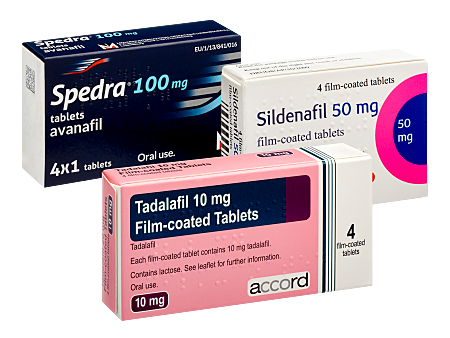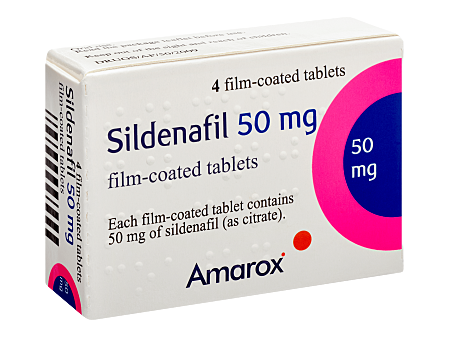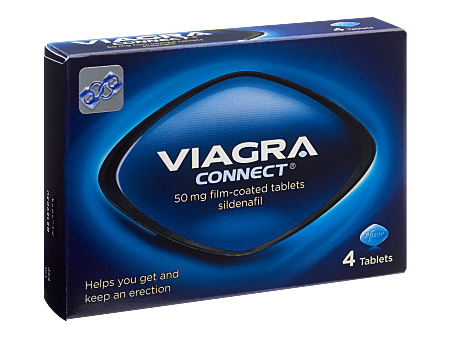What to do if you can't get or stay hard
How to Get and Keep Erections
Many men find that at some point they can’t get or stay hard. This means they either:
- Can’t get an erection when they want to (can’t get hard); OR
- Can’t keep their erection going as long as they want (can’t stay hard).
If either of these apply to you then we can help you decide what to do about it.


Medically reviewed by
Dr Simran DeoLast reviewed: 29 Jan 2021
Why Can’t I Get or Stay Hard?
As well as making it difficult to get erections, erectile dysfunction can make it hard to keep your erection going as well. Problems with keeping erections can be similar to those that cause not being able to get them in the first place. There’s a number of different reasons why you might not be able to get or stay hard, including:
Lifestyle causes:
- Smoking - the chemicals in cigarettes can damage the blood vessels in the penis, which reduces blood flow. This makes it harder to get and keep an erection
- Drinking - drinking in general will reduce your blood flow and makes it harder to get erections but especially drinking at the time you want to have sex will make your erections less reliable.
- Being overweight - being overweight will also affect your blood flow and limit your erection potential.
- Cycling - maybe a bit surprising but cycling a lot can affect your erection because of the pressure that’s being applied to the area around your penis.
- Drug abuse - like with alcohol, drug abuse can affect your ability to get an erection while high, but also long term because of the negative effects on your body.
Health-related causes:
- Some long-term health conditions - having diabetes, heart disease, hypertension, or cerebrovascular disease can increase your chances of not being able to get or stay hard.
- Premature ejaculation - if you are ejaculating early in the course of having sex then your erection will naturally go down afterwards.
- Psychological causes - if you are feeling stressed, anxious, or depressed this can prevent you getting aroused or stop you getting an erection.
Other causes:
- Existing medication - some medications for other health conditions can have side effects that can impact your erections. These include some antidepressants, blood pressure medications, and antipsychotics.
- Getting older - erections become less reliable the older you get and so it may be a result of aging that you see your erections becoming less predictable.
- Performance anxiety - if you find you are experiencing anxiety focused around your performance in bed then this can limit your erection potential. This anxiety may also get worse as a result of not being able to get an erection when you want to.
See our page on Causes of Erectile Dysfunction for more information and advice on how to figure out why you can’t get or stay hard. You can also order an erectile dysfunction test kit from us to help you investigate why you’re having trouble with erections.
It’s normal to lose erections after orgasming, and it can take some time (known as the refractory period) before you can get another erection. If you’re losing your erection because you’re orgasming too quickly, this is called premature ejaculation. If you need help lasting longer in bed, you could order premature ejaculation treatment online.
How to Get Hard Fast
If you’re having trouble getting an erection and you need to get hard right away, there’s a few things that could work:
- Relax – This can be hard to do in the moment, but stress makes erections more difficult. Breathing exercises, the 5, 4, 3, 2, 1, grounding technique, and the progressive muscle relaxation technique can all help.
- Make sure you’re aroused – Erections are a response to being turned on. Rather than focusing on the fact you’re not hard, try thinking about things that arouse you. You could also focus on looking at your partner for visual stimulation and pay attention to how your body feels since physical stimulation can encourage erections too.
- Be open about the situation – You may want to hide the problem from your partner, but discussing the issue can take some of the pressure off. Simply say you need a little longer to get hard and focus on foreplay and you could find your erection will come on its own.
There’s no way to guarantee an erection right away. If the tips above don’t help, you may have to accept you can’t get an erection right now and focus on the next time.
You may need to find a solution for performance anxiety, or any physical reasons for you not being able to get hard. See our page on How to Get an Erection for more information.
Can Medication Help You Get Hard?
If you regularly can’t get or stay hard (a condition formally known as erectile dysfunction) then there are medical treatments you can try which are proven to help. A doctor will usually prescribe medications called PDE-5 inhibitors for erectile dysfunction, as long as it’s safe for you to take them. They include:
These medications have around a 60% chance of helping you get or keep an erection if you couldn’t beforehand. They work for a wide range of situations so whatever’s stopping you getting an erection, they could be worth trying.
To order PDE-5 inhibitors like Viagra, you need to get an assessment from a doctor to make sure they’re right for you. You can do this at your local GP surgery or online using an online doctor service.
There are also injections you can get to help you stay or get hard that use a chemical called alprostadil. These injections can be trickier to use but avoid some of the effects that PDE-5 inhibitors have on other parts of your body because alprostadil is injected directly into your penis.
View Erectile Dysfunction Treatments

Trial pack including affordable generic treatments

Try a range of well-known branded treatments

Please check your spelling or try another treatment name.
Can You Get Hard Without Pills?
Pills for helping you get and stay hard are a safe and effective choice for a lot of people. Still, they aren’t right for everyone. So if you want some non-medical Viagra alternatives, there are some options:
- Lifestyle improvements - healthier lifestyle choices will also benefit your erections. These can include quitting smoking, losing weight, exercising regularly, and drinking less.
- Pelvic floor exercises - learning and using this type of exercise can strengthen the muscles responsible for your erections and they improve erections in 40% of men who practice them for 6 months.
- Devices like penis pumps - a penis pump is a reliable way to help improve your erections. They work for 90% of men who try them, but contrary to popular belief they don’t change the size of your penis.
- Get your current medication checked - if it turns out your erections are being blocked by medication you’re taking then you should see your doctor, who might be able to switch you to something else.
- Counselling or therapy - this is always a good idea if you find you can’t get or stay hard. You can talk through your situation with someone who can understand and provide support and advice, but you can also address other things like stress, relationships, or mental health problems.
All of these options are proven to improve erections for at least some of the people who try them. For the best chance of success, you can combine these strategies with erectile dysfunction medicines. Erectile dysfunction medications are effective and safe if a doctor approves treatment for you, and they can be bought online or even over the counter, like Viagra Connect.
If you’re looking for natural pills for erectile dysfunction, like herbal Viagras, you might be disappointed. These kinds of products aren’t proven to work and will most likely be a waste of money, and can potentially be unsafe to take.
Sources
- Bartle-Haring, S., Day, R. D. and Gangamma, R. (2014). Couple Communication, Emotional and Sexual Intimacy, and Relationship Satisfaction. Journal of Sex & Marital Therapy; 40(4): 275-293.
- Bella, A. J. et al (2015). 2015 CUA practice guidelines for erectile dysfunction. Can Urol Assoc J. 2015 Jan-Feb; 9(1-2): 23-29.
- Cao, S. et al (2013). Smoking and Risk of Erectile Dysfunction: Systematic Review of Observational Studies with Meta-Analysis. PLoS ONE, April; 8(4): e60443.
- Chen, J. et al (1999). Effect of oral administration of high-dose nitric oxide donor L-arginine in men with organic erectile dysfunction: results of a double-blind, randomized, placebo-controlled study. BJU Int, Feb; 83(3): 269-73.
- Cohan, P. and Korenman, S. G. (2001). Erectile Dysfunction. The Journal of Clinical Endocrinology & Metabolism, June; 86(6): 2391-2394.
- Engelhardt, P. F. (2003). Acupuncture in the treatment of psychogenic erectile dysfunction: first results of a prospective randomized placebo-controlled study. Int J Impot Res, Oct; 15(5): 343-6.
- Goldstein, I. et al (1998). Oral Sildenafil in the Treatment of Erectile Dysfunction. N Engl J Med, May; 338: 1397-1404.
- Hedon, F. (2003). Anxiety and erectile dysfunction: a global approach to ED enhances results and quality of life. International Journal of Impotence Research; 15(2): S16-S19.
- Heidelbaugh, J. J. (2010). Management of Erectile Dysfunction. Am Fam Physician, Feb; 81(3): 305-312.
- Mark, K. et al (2014). The Object of Sexual Desire: Examining the “What” in “What Do You Desire?” The Journal of Sexual Medicine, Nov; 11(11): 2709-2719.
- National Health Service (2014). Erectile dysfunction (impotence). NHS Choices. [online] Available at: https://www.nhs.uk/conditions/erection-problems-erectile-dysfunction/ [Accessed 01 November 2017].
- Ojewole, J. A. O. (2007). African traditional medicines for erectile dysfunction: elusive dream or imminent reality? Cardiovasc J Afr, Aug; 18(4): 213-215.
- Ryan, J. G. and Gajraj, J. (2012). Erectile dysfunction and its association with metabolic syndrome and endothelial function among patients with type 2 diabetes mellitus. Journal of Diabetes and its Complications, April; 26 (2): 141-147.
- Stanislavov, R. and Nikolova, V. (2003). Treatment of erectile dysfunction with pycnogenol and L-arginine. J Sex Marital Ther, Jun; 29(3): 207-13.












